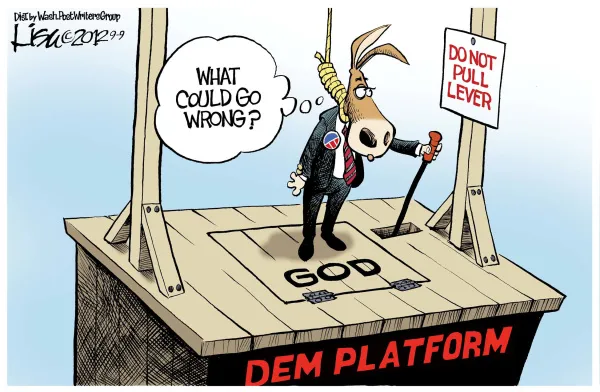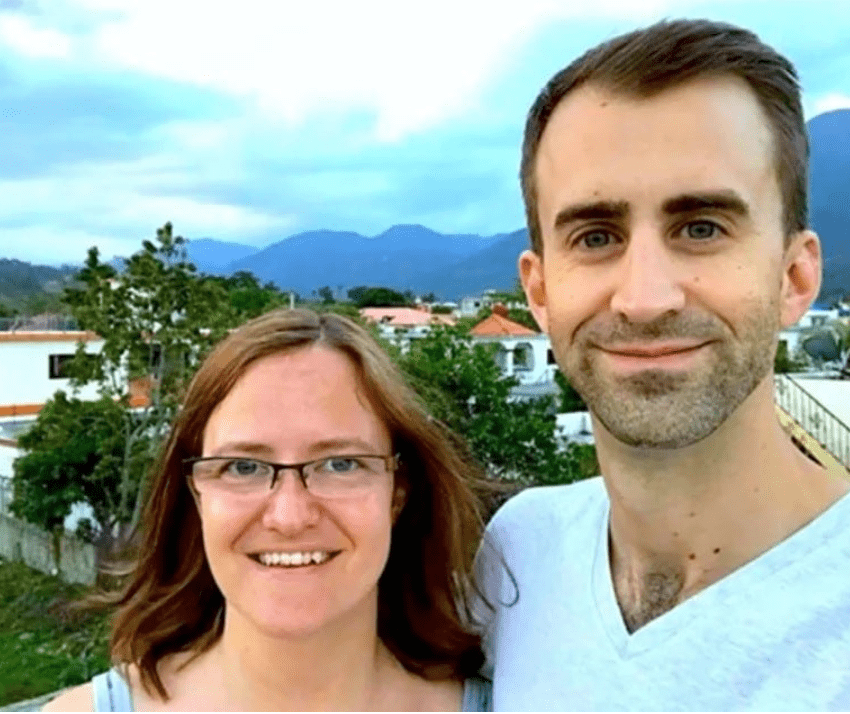
Democrats continue to offer postmortems for their recent election loss to Donald Trump. As I drove Polly to her physical therapy appointment today, I listened to a podcast about a recent New York Times op-ed featuring notable religious Democrats discussing the importance of making the Party more hospitable to people of faith. These Democrats, all of whom are Christians or Jewish, want the Party to become more God-friendly. The Times did not interview Democrats of secular, atheist, agnostic, pagan, Buddhist, Muslim, or other religious persuasions. This, once again, reveals a persistent bias found in the media towards religions other than Judeo-Christian sects. Worse, the media almost always fails to distinguish between the thousands of Christian sects and their wildly varied beliefs. When the media deliberately chooses only to interview sources from certain religious sects, it paints a false, distorted picture of religion’s influence and effect on the political process in general, and specifically the Democratic Party.
Some religious Democrats look at how God-centric the Republican Party is and want their Party to be the same, minus Christian Nationalism and Fundamentalism. Should the Democratic Party become more friendly towards people of faith? Should the Party speak more about God and the importance of faith?
The short answer is no. The Democratic Party has generally been neutral towards religion, stressing the value of religious pluralism. Religious and non-religious people alike are welcome in the Party. Unlike the Republican Party with its demands of fealty to the Christian deity, Democrats have promoted the importance of the establishment clause and the separation of church and state. Now, it seems, some Democrats want a more religion-friendly Party. This, of course, is a bad idea, especially since the United States is becoming more secular and less religious. Church attendance is in free fall, and people who are indifferent towards organized religion or are non-religious are a growing demographic.
Instead of becoming more Judeo-Christian (a made-up term, by the way) friendly, the Democratic Party needs, instead, to stress and advertise its big tent approach to people of all faiths, including people without faith in a deity. Democrats should talk about religious freedom, the separation of church and state, and how much taxpayer money goes toward supporting churches, clerics, religious colleges, parochial schools, school vouchers, and homeschoolers, to name a few recipients of billions of dollars of tax money. Americans need to know how much of their hard-earned money is being used to prop up religious institutions.
The Democratic Party should be a place for everyone, religious or not. That said, we should not listen to voices clamoring to be more like the Christian God-obsessed Republicans. God is not the solution for any of the problems the United States currently faces, or will face in the future. As we are fixing to find out with President Donald Trump and his administration’s theocratic agenda, more God will only bring chaos, violence, persecution, and death.
Democrats risk alienating secular and non-religious Party members if they become more like the Republican Party. I, for one, will leave the Party if it does so. By all means, the Democratic Party should be the party of inclusion and pluralism. However, this should not come at the expense of secular and non-religious Democrats, people the Party cannot afford to lose. The Democrats have a short amount of time to figure their shit out before it’s time to give Trump and MAGA a devastating mid-term defeat. If Democrats lose secular, non-Christian voters, their fate is sealed. Losing Muslim voters during the 2024 election materially hurt the Party. It remains to be seen if these voters will return. Democrats need to return to being a big-tent party, and not more like the Republicans. I’m sure God, whomever he/she/it is, will understand.
Bruce Gerencser, 68, lives in rural Northwest Ohio with his wife of 47 years. He and his wife have six grown children and sixteen grandchildren. Bruce pastored Evangelical churches for twenty-five years in Ohio, Texas, and Michigan. Bruce left the ministry in 2005, and in 2008 he left Christianity. Bruce is now a humanist and an atheist.
Your comments are welcome and appreciated. All first-time comments are moderated. Please read the commenting rules before commenting.
You can email Bruce via the Contact Form.

